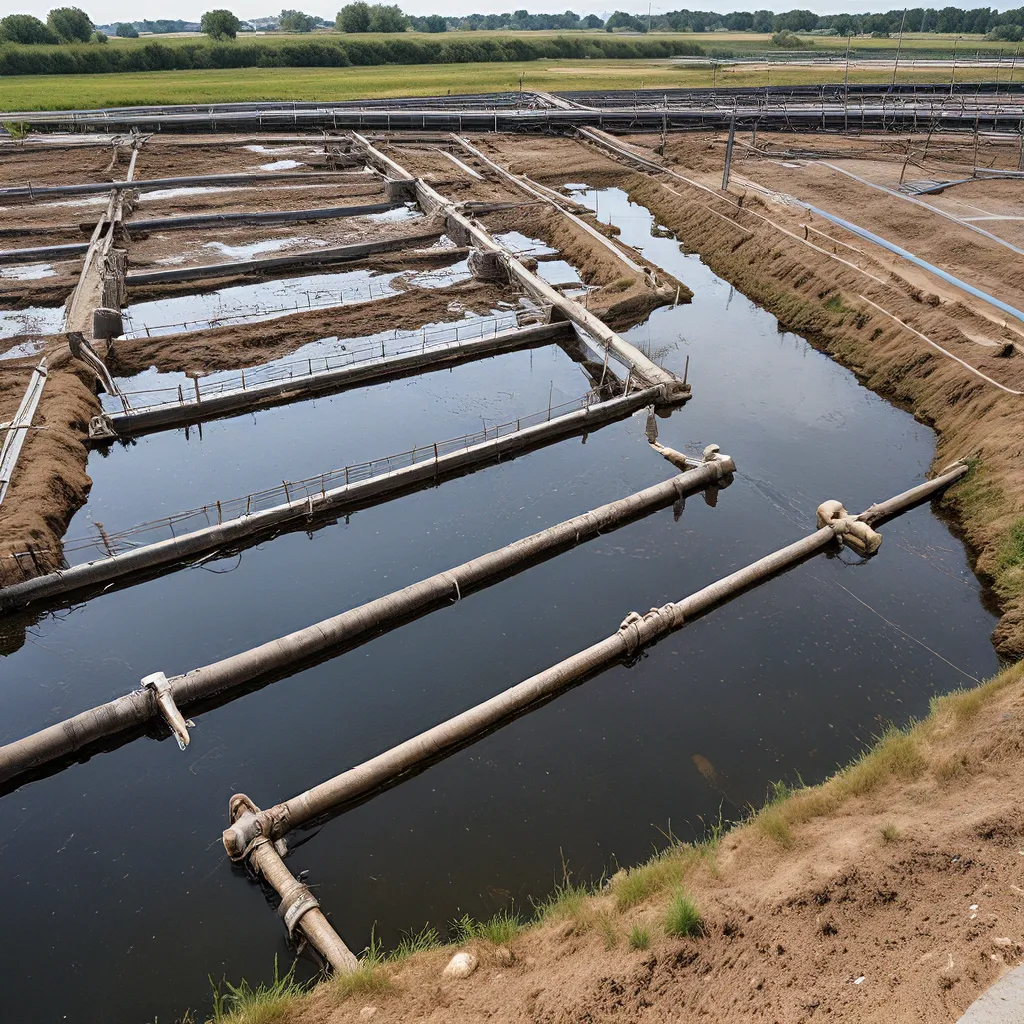
Uncovering the Hidden Toll of Settler Pollution
As I delve into the complex and often-overlooked issue of wastewater discharge from Israeli settlements in the occupied West Bank, I can’t help but feel a sense of unease. This is a topic that rarely makes headlines, yet its consequences reverberate through the lives of countless Palestinian farmers and communities.
Let me start by painting a vivid picture. Imagine lush, fertile lands – the kind that have nourished Palestinian families for generations. Now, picture those same lands being slowly choked by a deluge of untreated sewage and industrial waste, cascading down from the nearby Israeli settlements. It’s a scene that has become all too common, and one that is quietly eroding the very foundation of Palestinian life.
According to the Norwegian Refugee Council (NRC), the discharge of untreated or inadequately treated settlement wastewater onto Palestinian lands is a severe and pervasive issue. This practice, carried out with impunity by the occupying Israeli authorities, is not only an environmental disaster but also a profound violation of the human rights of the Palestinian people.
The Devastating Toll on Palestinian Lands and Livelihoods
As I delve deeper into the research, the scale of the devastation becomes increasingly clear. In the two Palestinian communities that the NRC report investigated – Wadi Shakhit in Hebron and the vicinity of the Immanuel industrial zone in Qalqilya – the evidence of the environmental and economic impacts is simply staggering.
Laboratory analysis commissioned by the NRC revealed the presence of high quantities of faecal-associated E. coli bacteria in the water samples, a clear indication of recent sewage or animal waste contamination. This toxic cocktail of untreated wastewater has had a profound and lasting impact on the surrounding farmlands and agricultural production.
According to the affected farming communities, the discharge of wastewater has led to a steep decline in crop yields and income. In one case, farmers reported losing up to 70% of their total olive tree harvest compared to pre-discharge times. Additionally, a significant drop of 50-70% in annual income from agriculture was reported, as the contaminated produce became increasingly difficult to market.
The devastating effects don’t stop there. As Ahmed, a farmer near the Immanuel industrial zone, poignantly shared, the wastewater has “extensively flooded my land. A salt layer now covers the soil, significantly impacting the quality of the produced oil from my olive groves.” Where once thriving olive trees yielded no less than 25 kilograms of olives, production has now dropped by half.
It’s a heartbreaking story, repeated across countless Palestinian communities that find themselves on the receiving end of this environmental and economic onslaught. The loss of land, diminished agricultural yields, and plummeting incomes have taken a profound toll on the livelihoods and well-being of these families, many of whom have been tending to these lands for generations.
The Broader Implications: Displacement, Climate Change, and Human Rights
But the impact of this wastewater discharge extends far beyond the immediate environmental and economic consequences. It is also a powerful tool in the ongoing Israeli occupation and forcible transfer of Palestinians from their ancestral lands.
As the NRC report highlights, the discharge of wastewater serves to drive Palestinians from their lands and heighten the risk of expropriation, thereby contributing to the ongoing annexation of West Bank territory and raising serious questions about Israel’s adherence to international law.
Moreover, this environmental degradation further undermines the Palestinian capacity to withstand the impacts of climate change, rendering them increasingly vulnerable to the devastating effects of droughts, soil depletion, and water scarcity. In a region already grappling with the dire consequences of a changing climate, this additional burden threatens to push already-fragile communities to the brink.
Ultimately, this issue of wastewater discharge is not just an environmental concern; it is a fundamental human rights issue. As the NRC’s Samah Hadid so eloquently states, “This time their land, livelihoods and well-being are threatened by the harmful dumping of hazardous wastewater. We urge the international community, particularly Israel’s staunchest allies, to exert pressure on Israel, the occupying power, to safeguard Palestinian communities, lands and resources from the detrimental effects of disposed waste.”
The Path Forward: Accountability, Mitigation, and Empowerment
As I reflect on the depth of the problem and the far-reaching implications, I can’t help but feel a sense of outrage and a burning desire for change. It’s clear that the international community must take decisive action to hold Israel accountable for these egregious violations of environmental and human rights.
Wastewater treatment services can play a crucial role in mitigating the devastating impacts of this issue. Investing in the necessary infrastructure and technology to properly treat and dispose of settlement wastewater could go a long way in protecting Palestinian lands and communities.
But the solution cannot be purely technical; it must also address the underlying political and humanitarian dimensions of this crisis. Affected farmers and communities must not only receive reparations but also the support to recover and improve their conditions, as the NRC has rightly advocated.
Ultimately, this is a complex and multifaceted issue that demands a holistic approach – one that combines environmental justice, human rights, and political accountability. Only then can we begin to heal the wounds inflicted on the Palestinian people and safeguard their fragile yet resilient relationship with the land that has sustained them for generations.
As I conclude my exploration of this topic, I am left with a profound sense of urgency and a deep respect for the tenacity and resilience of the Palestinian communities who continue to fight for their rights and their land. This is a battle that must be won, not just for the sake of the environment, but for the very soul of justice and human dignity.